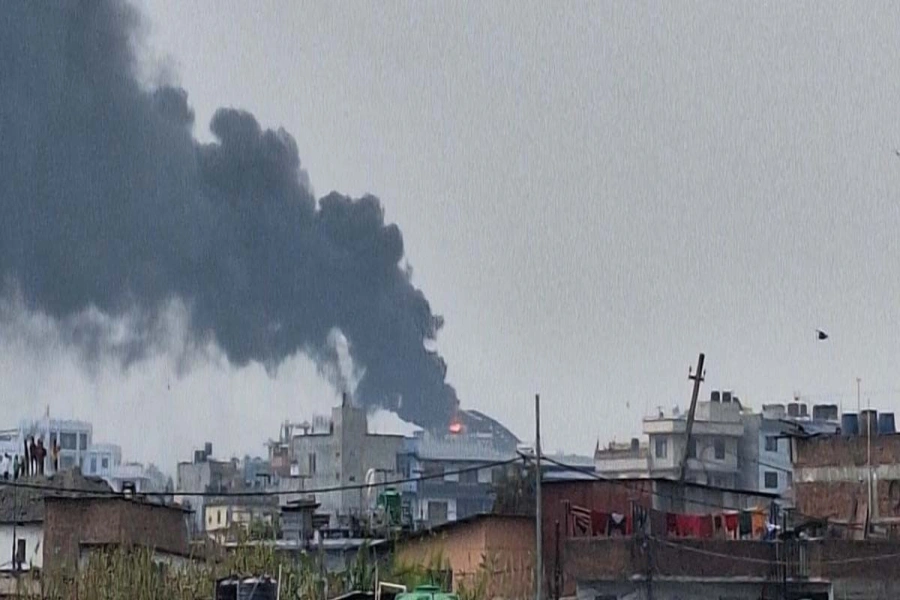FNCCI urges govt for collaboration to bail the country out of the impending economic crisis
KATHMANDU, Nov 30: Although Nepal regained nominal improvements in its external sector indicators recently, the performance of the overall macroeconomic indicators continues to remain dismal.
The Federation of Nepalese Chambers of Commerce and Industry (FNCCI) on Tuesday cautioned the government and related bodies to implement corrective measures on time, arguing that the dismal performance of the macroeconomic indicators could eventually pose threat to the country’s economy. The umbrella organization of the private sector maintained that the country’s economy might fall into a serious crisis if preemptive measures are not taken on time.
In the past eight months, the total credit flow of banks was only Rs 60 billion compared to Rs 450 billion during the first six months of the fiscal year 2021/22. This has impeded the economic activities that had started regaining pace in the post-COVID period.
Economy in the doldrums

“Had the regulators taken conscious measures on time citing the excessive credit flow during the pandemic, the situation would not have been this worse,” argued FNCCI President Shekhar Golchha.
Amid the ongoing economic slowdown, soaring prices of consumer goods have taken down people’s purchasing power and aggregate demand has fallen heavily. This has taken its serious toll on the country’s productive sector.
In a survey carried out by the FNCCI, the manufacturing industries, mainly those producing construction materials including iron rods and cement, have been operating at only 30 percent of their total capacity. While the consumption of everyday essentials has fallen by 18 percent, the transaction of electrical appliances has been down by 55 percent, that of automobiles by 75 percent, restaurant business by 20 percent and real estate business by 48 percent.
Likewise, transactions in the capital market have plunged 40 percent and those of insurance by 30 percent. The insurance business has been affected largely, mainly due to the downfall in the transactions of the productive sector.
The FNCCI has also underlined potential threats to the government’s financial system due to a surge in public expenditure amid slump in revenue collection. Government records show that revenue collection was down by 19 percent in the first three months of the current fiscal year, while the regular expenditure surpassed the revenue collection by Rs 17 billion.
The FNCCI has also expressed its dissatisfaction with the revised monetary policy recently endorsed by Nepal Rastra Bank. “Although a reduction in the spread rate from 4.4 percent to 4 percent is a welcome decision, it will not be sufficient to lessen the heat of the high interest rates on production businesses,” Golchha said.
The FNCCI has suggested the government implement a number of measures including reducing the mandatory cash reserve ratio for banks by one percent, allowing banks to fully consider the central government’s grant to local governments in their deposits and taking prompt measures to make the flow of the cash held in the government treasury into the banking system to address the current problem of Nepal’s economy. These measures are expected to ease the acute liquidity problem seen in the banks in the country.
The umbrella organization of the private sector has also demanded the government expedite capital expenditure and allow the private sector to take external commercial loans. It has also asked the central bank to renew the refinancing facility being provided to the banks and financial institutions.
Golchha said that the private sector is ready to work together with government bodies to solve the current problems. “If the government fails to implement the necessary corrective measures, we will be compelled to launch protests,” he added.





-1200x560-1772467693.webp)
































